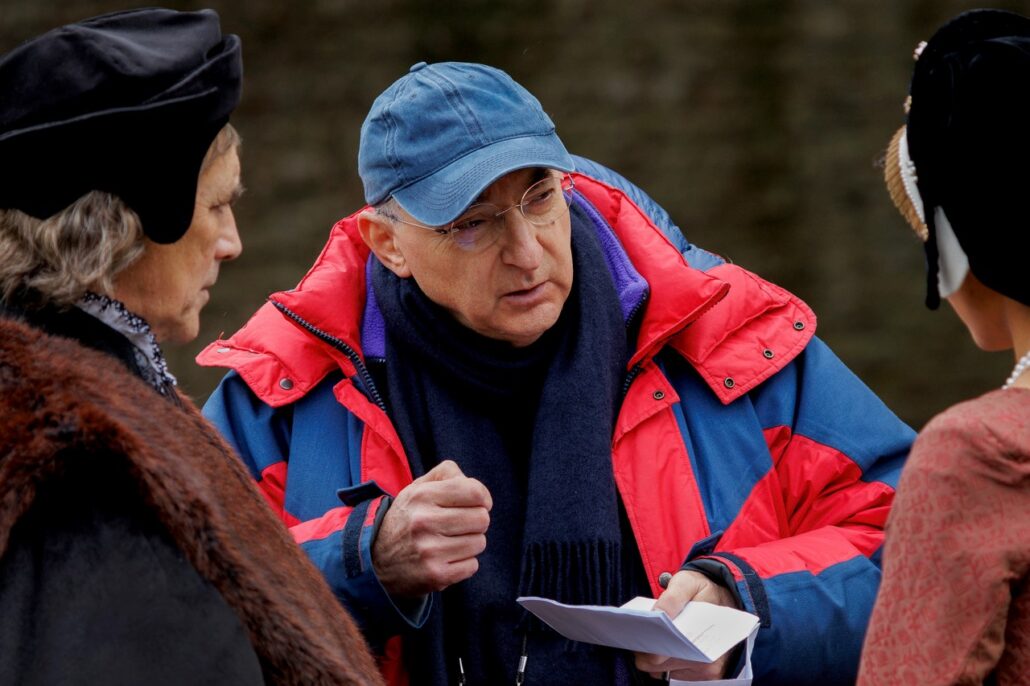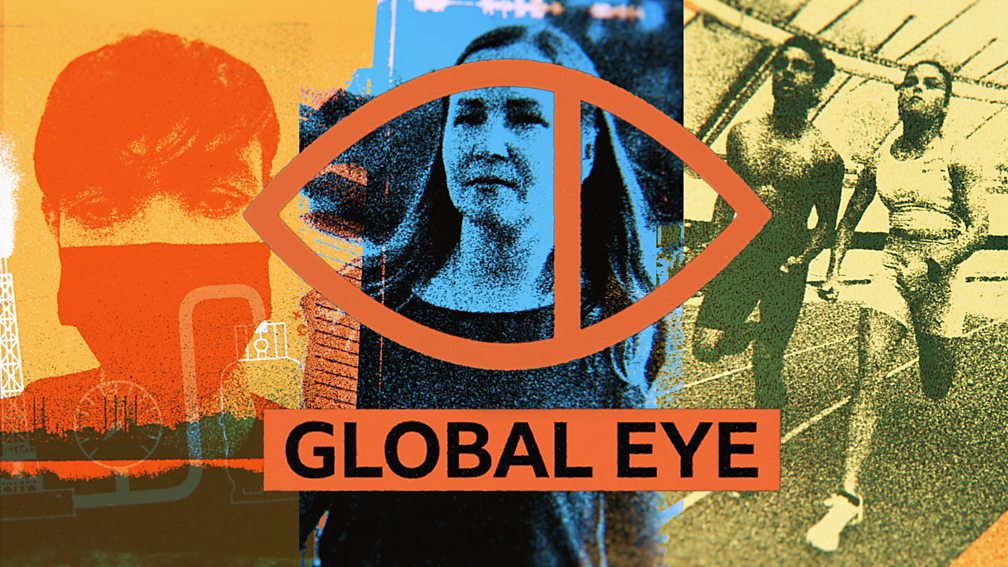The winner of the 2025 Sandford St Martin Trustees’ Award is the writer, director and producer Peter Kosminsky. For more than four decades he has used the power of television and film to entertain, but also to provoke and to challenge. Earlier this year, his meticulous eye for detail and his willingness to confront difficult realities came to the fore when he gave evidence to the CMS Select Committee on TV Production challenges. His submission, among others, resulted in MPs publicly calling for urgent action – including a streamer levy – to protect distinctly British content and support the UK’s high quality drama sector. The Government has yet to act on the Committee’s recommendations; the full report can be read here: British film and high-end television
Written evidence submitted by Peter Kosminsky

By Peter Kosminsky, submitted to the CMS Select Committee January 2025
My name is Peter Kosminsky. I’m a writer and director of television drama, approaching
45 years in the UK industry. I’ve worked for all the UK public service broadcasters. I’ve
served on both the Bafta and BFI boards and am a Fellow of the Royal Television
Society. Ten years ago, I made Wolf Hall, the BBC TV adaptation of Hilary Mantel’s two
Booker Prize winning novels. Last year, I directed The Mirror and the Light, completing
the adaptation of Hilary’s trilogy. I’m writing this submission to alert the Committee to
the fact that, were we to try to make The Mirror and the Light today, we would not
succeed.
THE PROBLEM
The Mirror and the Light was offered to each streamer in turn. Despite the fact that its
first series had won a Golden Globe, they all turned it down. It was only possible to
begin production when the producer, the writer, the director and the leading actor all
gave up a significant proportion of their fees. We had shepherded the series through a
ten-year development process but, in the end, it was necessary for us to work for very
little to get the show made.
Mr Bates and the Post Office, which altered the national narrative on an important
issue, similarly teetered on the brink of not making it to the screen.
PACT has identified 15 further TV dramas that have been green-lit by the UK PSBs but
are currently unable to proceed. This is because the financial contribution a PSB can
offer, together with a sales advance and the UK tax break, are insufficient to make high-end TV drama in 2024/5 – in the inflated cost environment created here by the
streamers.
What do all these programmes have in common? Their subject-matter is of particular
interest, perhaps of particular cultural significance, to a UK audience. But they are not
seen to have “legs” – not likely to appeal, in particular, to an American audience.
THE STREAMERS
Though there are exceptions, it is not currently part of the streamers’ general financial
model to co-produce with UK PSBs. They prefer to wholly own a project. The UK public
service tradition involves purchasing the right to broadcast from an indie, leaving that
producer free to sell their programme to overseas territories and to participate in its
eventual success. If an indie makes a high-end drama for a streamer, it generally has to
hand over the whole IP. They work for a fee, removing the possibility of sharing in the
programme’s profits and reducing its creators to the status of freelances – hired by the
streamer in the same way a production might hire a sound recordist or an editor.
Oddly, this was the status of programme-makers when I joined the industry in the
1980s. We worked for a flat fee, no more. Then came Channel 4 and, with it, the indie
revolution. This was the UK’s gift to the wider industry, mimicked across much of the
western world, but it is now being steadily undermined by the streamers, who seem to
prefer to turn the clock back.
The streamers pay little tax and, unlike the UK PSBs, have no regulatory obligations. I’m
not suggesting adding such obligations, which would be hard to police for multinational
companies. The streamers aren’t like the PSBs. They think only commercially and
internationally and have made some stunning programmes. But they have little or no
interest in making the minority of high-end dramas that are of specific interest to a UK
audience. And we need to ensure that, in pursuing their entirely legitimate business
model, they don’t drive UK-skewed, public service drama out of existence.
The UK is not the 51st state. We have our own culture, and public service drama is a
part of that heritage, as well as being an important manifestation of free speech. We
can’t afford to lose it. Luckily, there is a solution – one that is already in use in most of
our neighbouring industries.
THE SOLUTION
5% of each streamer’s UK subscription revenue would be earmarked for a cultural fund,
to be used exclusively for high-end drama of specific interest to UK audiences but
which doesn’t necessarily have cross-border appeal.
17 other countries in Europe already do this. 5 more, (including Ireland), are
considering putting similar structures in place. Netflix fought this initiative in the
courts, first in France and then in Germany. It lost in both jurisdictions. On one of his
rare visits to London, I asked Reed Hastings, (co-founder and executive chair of Netflix),
if he would similarly seek to fight it in the UK courts. ‘Not if it was a level playing field
across all the streamers’, was his reply.
Currently, as I understand it, the percentage holdback for programming of particular
local relevance is:
France – 5.15% (of French streaming subscriptions)
Denmark – 5%
Netherlands – 5%
Germany – 2.5%
Romania – 4%
Poland – 1.5%
Italy – 20%
Spain – 5%
Portugal – 4%
Croatia – 2%
Belgium – 2%
Greece – 1.5%
Switzerland – 4%
Czech Republic – 3.5%
The streamers will say that such a hold-back would reduce UK inward investment,
which is currently at a high level. Of course, they would say that. But I would argue, as
someone who has worked in UK high-end television for a long time, that it will not. The
streamers come to the UK because of:
- our generous tax breaks
- the common use of the English language
- our creative talent base: the celebrated writers, actors, directors and producers who work here
- our crew skills in depth
- our excellent modern studios
- our good digital communications
- our world-renowned post-production crews and facilities
- our long experience of visual and special effects
- our similar cultural reference points
- our stable political and financial climate, and
- the benign, (compared with the US), union environment in our industry.
In fact, in my contention a 5% hold-back on subscriptions won’t affect how many
programmes the streamers make in the UK at all. If the government follows the rest of
Europe and brings in such a system, the streamers must make this contribution
whether they shoot or post-produce a single programme here or not. The decision to
produce in the UK will be made, as it always has been, on hard-headed considerations –
relative cost; available facilities; artistic preference of key talent; the other factors
listed above. And the creation of a creative fund wouldn’t increase a streamer’s actual
cost of production in the UK by one cent.
From the UK’s own point of view, as the streamers’ success with our audience grows,
this independent creative fund will simultaneously grow. And with it, the number,
(always a minority), of programmes of special interest to our audience that we can
make using it.
HOW WOULD IT WORK?
We would set up a slim, free-standing body, call it ‘British TV’ or ‘BTV’. It would be
entirely self-financing, drawing its capped running costs directly from the sums
received from the streamers. It would be staffed by a small group of people with
extensive, hands-on experience of UK high-end PSB drama production. Its editorial
panel would be made up of experienced people who can command industry-wide
respect. Its members would serve for a limited period, (say 5 years?), to avoid creating
permanent barons with the power to say yah or nay to programming.
Only producers would be allowed to submit programmes to BTV for funding
consideration. Broadcasters couldn’t do it. Panel members would be able to recuse
themselves if a particular project presented a conflict of interest.
Each programme submitted would need to have UK PSB funding already attached,
together with a realistic advance from a sales company. The fund’s finance officer
would need to be convinced that BTV’s contribution would fill the funding gap, allowing
the programme to go ahead for production. And the programme would need to be of
particular interest to a UK audience, the kind of series a streamer wouldn’t make.
The contribution from BTV would be a grant, not a loan or an investment. This would
have several advantages:
(a) It would avoid unpicking the investment structure already in place, by not
requiring a change in back-end recoupment.
(b) It would remove the profit incentive for BTV, the need to make its money back.
This would allow the editorial panel to make its decision entirely on the grounds
of the merit of the project.
So, the panel would be assessing the project’s:
- importance to the UK audience (must be high)
- likelihood of attracting streamer finance (must be low or zero)
- artistic/cultural merit (must be high)
- regional element (must be significant)
and their confidence that the programme would get made if BTV agreed the requested
grant.
The streamers are perhaps the ultimate manifestation of a free market in television.
They have made some extraordinary, mould-breaking programmes – turning high-end
TV drama into the medium of choice for ‘A-List’ talent, partially usurping the feature film
and breaking the unhealthy, snobbish divide been theatrical and television filmmaking.
But an unintended consequence of this explosion of creativity has been a market failure
– a failure to fund the kind of drama, such as Mr Bates or Wolf Hall, that is of particular
interest to a UK audience. Whilst these programmes will always be a minority of our
output, they are also an essential part of it. And we are losing it. Blink and it will be
gone – and our audiences will not thank us for it.
A ‘British TV’, with its self-financing cultural fund, would be brought into existence
entirely to address this market failure. Its criterion wouldn’t be profit, it would be
excellence. And our culture would be the richer for it.
Peter Kosminksy’s Sandford St Martin Trustees’ Award will be dedicated by Sir Colin Callender CBE and presented to him at Lambeth Palace on 17 June, 2025.






Leave a Reply